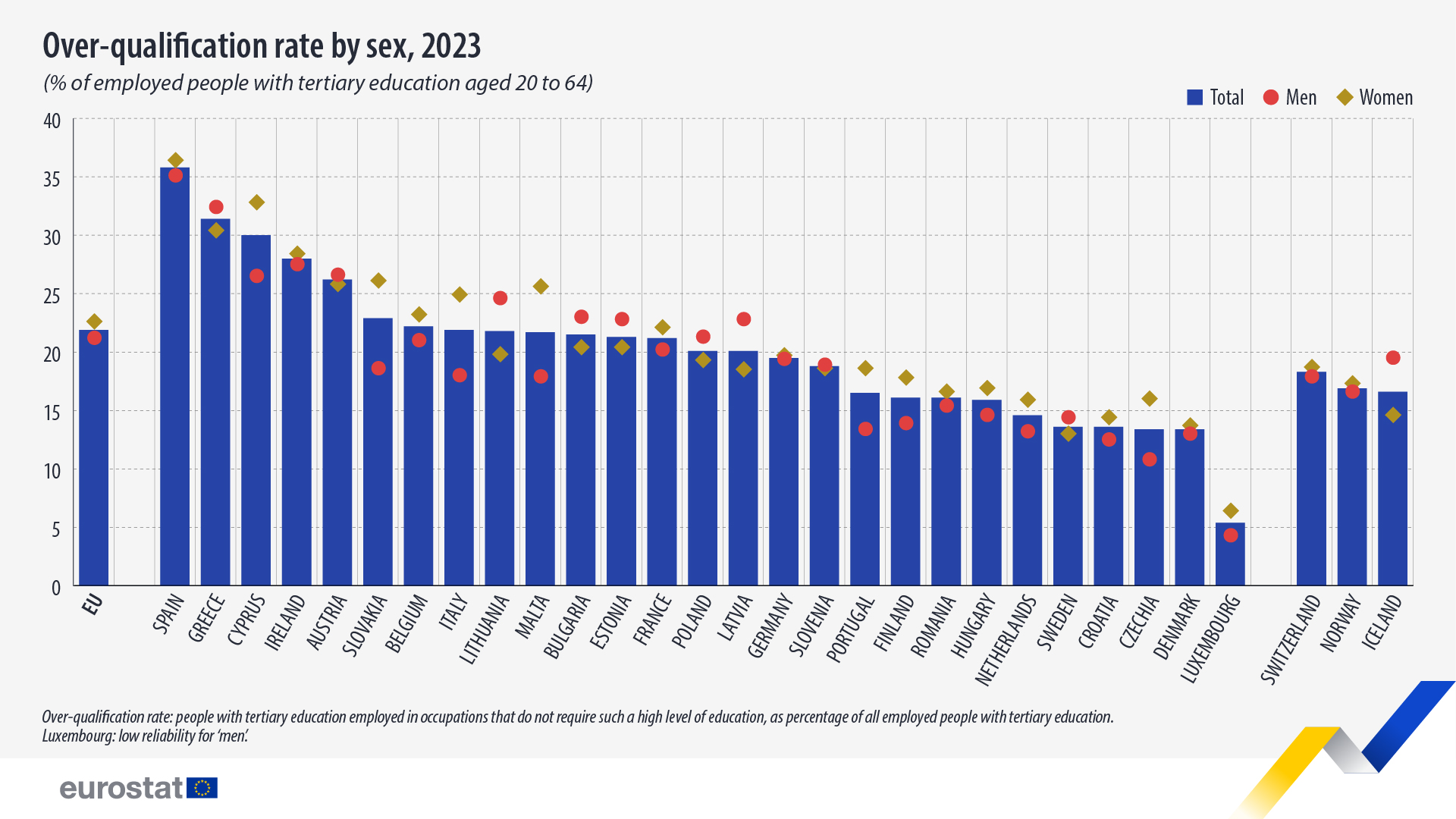EU's employment rate exceeds 75% in 2023

In 2023, more than 75% (195.7 million) of the EU's 20 to 64-year-olds were employed, the highest share recorded since the start of the time series in 2009. This marks 3 consecutive years of growth after a drop to 72% in 2020 due to the COVID-19 pandemic.
This information comes from the data on the labour market published recently by Eurostat. This article presents a handful of findings from the more detailed Statistics Explained article.
Source dataset: lfsi_emp_a
Among the EU countries, the highest employment rates were recorded in the Netherlands (84%), Sweden (83%) and Estonia (82%). The lowest rates were recorded in Italy (66%), Greece (67%) and Romania (69%).
Women more over-qualified than men
In 2023, the EU over-qualification rate was 22%, with 21% for men and 23% for women. Over-qualification is when people with tertiary education are employed in occupations that do not require such a high level of education.
Among the EU countries, the over-qualification rate was highest in Spain (36%), followed by Greece (31%) and Cyprus (30%).
Meanwhile, Luxembourg (5%), Denmark and Czechia (each 13%) recorded the lowest rates.
Source dataset: lfsa_eoqgan
In 18 of the 27 EU countries, women had higher over-qualification rates than men, with the largest differences recorded in Malta and Slovakia (both +8 percentage points (pp)) and Italy (+7 pp).
However, in 9 EU countries, men had higher over-qualification rates, with the biggest differences recorded in Lithuania (+5 pp), Latvia (+4 pp) and Bulgaria (+3 pp).
For more information
- Statistics Explained article on employment - annual statistics
- Thematic section on employment and unemployment (LFS)
- Database on employment and unemployment (LFS)
- Statistics 4 Beginners on the labour market
Methodological note
Over-qualification rate: people with tertiary education (international standard classification of education (ISCED) levels 5-8) employed in occupations that do not require such a high level of education (equivalent to international standard classification of occupation (ISCO) major groups 4-9), as a percentage of all employed people with tertiary education. This definition is based on ILO's International Standard Classification of Occupations: Structure, group definitions and correspondence tables.
If you have any queries, please visit our contact us page.

